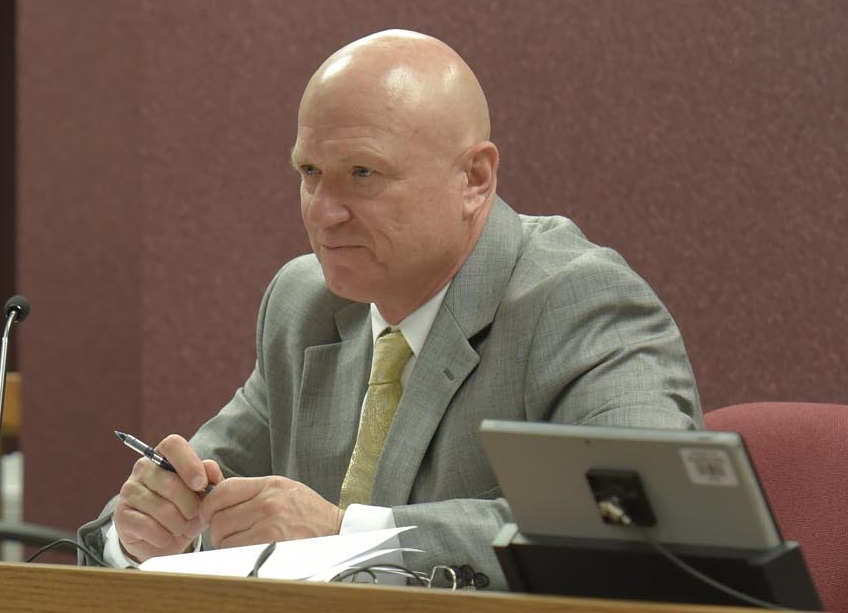The Parson Administration has made its case to the House Budget Committee for a proposed 5.5-percent pay increase for state employees.

The committee heard from the administration’s budget director, Dan Haug, who outlined the motivation for the plan that would cost about $72-million including $41-million in general revenue. It would set state employee pay at a minimum of $15 an hour and kick in February 1, if it can get through the legislature by then.
Haug said Missouri must do something to respond to recent and rapid changes in the labor market.
“We’re getting to the point where if we have more vacancies and more turnovers we’re not going to be able to operate our state facilities,” said Haug. He said some facilities with minimum staffing requirements, such as prisons and mental health facilities, have resorted to forced overtime to fill shifts.
“That’s not the way we want to run the state,” said Haug.
Haug said one reason for proposing a February 1 start date is that a stipend being paid out of federal money to state employees in some institutions came to an end at the end of December.
Most lawmakers seemed to agree with the desire to increase state employee pay.
“Let’s face it: we’re in competition with McDonald’s right now, so obviously something has to break there, without a doubt,” said Representative Don Mayhew (R-Crocker).
Excelsior Springs Republican Doug Richey agrees, but he has an issue with setting a new minimum baseline of $15 per hour for state employees’ pay. He said given existing pay structures that could set the income of some new state hires too close to the level of pay of long-term employees.
“Creating an arbitrary baseline prevents us from being able to be responsive to the market, as well as sends an unintended message that would be somewhat negative to those … who have been working for two decades,” said Richey. “You can work for 20 years in your job, have tremendous institutional memory and ability, but you’re really no different than a part-time custodial worker at 17 years of age with no experience.”
“I wanna get away from the $15 an hour because to me that’s just a number. That’s not what it’s going to take to get people in. I’m an employer … in unskilled jobs and I can’t get people for $17 an hour, so that $15 an hour is just a number we’re throwing out there and I believe that is for political reasons,” said Representative Richard West (R-Wentzville). “Let’s do realistic and what’s it going to take to hire? For one department it may require 15, for another department it may require 18, for another department it may require 22.”

Many legislative budget makers resist using federal funds to support ongoing expenses, like state employee pay. They refer to it as, “one time money.” Haug said this proposed pay hike relies only on state funds.
“Missouri’s revenues are doing very well. Right now the state’s economy is doing well. We have more people coming back to work. Our revenues are coming in very strongly. They came in very strongly last fiscal year. The consensus revenue estimate shows strong growth through fiscal year 23,” said Haug. “Even at a very conservative growth rate of 1.5-percent growth in general revenue we can easily afford this ongoing pay increase.”
Haug, who has worked with the state’s budget for more than 25 years, said, “I feel very confident that we can afford what we’re doing now and what we’re going to need to do in the future.”
Other legislators asked whether studies should be done to make sure the state needs the employees it has, or that pay increases would be going to the employees who are most needed or deserving. Haug said the state has reduced its workforce significantly in the past ten years, and said such an employee pay review could take months, and changes to the labor market necessitate a quick response. He said state employee turnover in some positions and pay levels has been as high as 55-percent.
The committee has not voted on the bill which includes the proposed pay plan, House Bill 3014.

